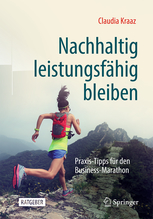Life in the time of corona – a more positive assessment than expected
I asked all my coaching clients about their experience of the corona crisis in terms of negative and positive impacts and what they now do differently to before. They indicated that the most negative aspects for them were the restrictions on their freedom of movement, combined with a loss of control and the fact that they could only maintain relationships remotely. On a positive note, they had more time for their family, were less busy and led healthier lives. They want to retain many of these positive aspects going forward.
In June 2020, 18 of the 25 clients I am coaching at present completed a survey that I had created about the negative and positive impacts of the corona pandemic. I was very pleased to receive their input and divided their views into the following topics: ‘Freedom of movement & loss of control’, ‘More fears”, ‘Impact on relationships’, ‘Healthier living’, ‘New ways of working’, ‘Actively managing my schedule’, ‘More demanding leadership’ and ‘Other’. Here is their assessment (followed by my own views):
Freedom of movement & loss of control: One client summed up her feelings in a pointed but apt way: She said that she felt as if a war was being waged against an invisible enemy and that people were at its mercy. She added that it was virtually impossible to do things in the same way as before. Above all, she said that you suddenly found yourself on your own or with your immediate family, if you have one. Many people have found it very difficult not being able to do what they want, especially being isolated at home. This feeling was particularly pronounced among those of my clients who live alone. They had to battle with loneliness. Many of my clients missed the activities and trips they had been forced to cancel.
Some were very impressed by the ability of people to adapt – i.e. by how well we all coped with being locked up at home from one day to the next – or by the way in which so many companies were able to switch to a home office set-up so quickly after calls for this working model had previously often fallen on deaf ears. One of my clients wrote: “The crisis drags you out of your comfort zone.”
More fears: Very few of my clients were afraid of contracting coronavirus themselves – but a number were concerned about their loved ones. If they were anxious, it was mainly when they were out in public places. A few were worried about their future employment and their finances – especially three of my clients who lost their jobs or had left a position voluntarily shortly before the outbreak of corona – because it is now more difficult to find a job. Certain corporate clients also felt the financial pressures that their firm is under.
Impact on relationships: The lockdown had a drastic impact on both our personal and professional relationships. We were no longer able to see loved ones, unless they were living in the same household. All meetings could only take place online – i.e. in two rather than three dimensions. In a business context, many of my clients regarded this as a major disadvantage because you can sense people’s emotions more directly when you meet in person. Lockdown also meant that all informal encounters, e.g. at the coffee machine, ceased. This made some people recognize just how important these chance encounters are at work, since they strengthen our sense of togetherness. The fact that it was no longer possible to physically meet with people also hampered creativity in processes that are focused on innovation or problem-solving (online contact cannot entirely replace physical contact).
In their private lives, many people found it difficult no longer being able to physically meet with those close to them. At the same time, this led to greater awareness among most of them about the importance of this contact to their loved ones. They also maintained contact with them more actively (only online). At home, people only had contact with their immediate family (if they have one) – a situation that was unanimously regarded as very positive. Virtually none of the respondents stated that their relationships came under any additional strain.
Healthier living: Almost all of my clients wrote that they lead healthier lives during corona in various ways: they did more exercise (sports, walks, bought a bike, etc.), spent more time outdoors, cooked and ate more healthily, and took more time to rest and sleep. People took better care of themselves and did things that do them good. But it was not only their physical health that improved but also the mental health. Many took more time for self-reflection and became aware – either individually or in intensive discussions with their partners – about what is really important to them in life and what is good for them (or not). The fact that almost all private meetings and absolutely all professional evening events did not take place was felt by many as a very positive slowdown in their pace of life.
New way of working: Almost all of my clients mentioned that they worked very differently in their home office during lockdown (only one client had to stay in her regular office because her work is systemically relevant). Overall, my clients really valued being able to work in their home office. The advantages they identified were the fact that they no longer had to spend time commuting, and they could organize their day more flexibly and freely because they had fewer meetings and less interruptions, and they could focus better on their tasks. Online meetings were rated more positively than expected but – as already mentioned – the respondents missed holding meetings in person. Some had difficulties, especially at the start, in having to organize their working day much more autonomously and they found home working less efficient.
Actively managing my schedule: A lot of my clients enjoyed the fact that their schedule was less hectic than in the office and their weekends were free. Only those individuals who live alone had difficulty with this issue. People no longer had the feeling of having to be present everywhere (privately and professionally). One client wrote that the default had changed from “being away a lot and spending little time at home” to the opposite, which she found very positive. Privately, people had time for spontaneous activities – i.e. doing what suited them at a certain time (not what they had arranged weeks before). They also had time to live for the moment. Some respondents also appreciated the fact that everyday life was limited to the essentials – like a kind of detox.
More demanding leadership: Some of my clients who are managers found it much more difficult to perform their leadership role. If you only see your employees online, it becomes more difficult to assess how they are based on non-verbal communication. And the informal encounters that are helpful in this context ceased to occur, as stated above. Certain processes also become more complicated, e.g. the induction of new employees. Managers mentioned that motivating people was more challenging when you don’t see them regularly; they explained that viewed overall, leadership behavior needs to be much more situational and that creative solutions must be found. Conversations in which employees are given critical feedback were also difficult because some of the negative aspects could not be dampened by body language or specific seating arrangements. Generally speaking, they found that a much more empathic approach was needed than before the crisis.
Other: There were also a few notable points that were mentioned by only a few clients: The realization of how dependent we are on some countries; the fact that if you plan properly, you don’t have to go shopping as often; and the feeling that as a result of the restrictions, it was also possible discover a lot of great new, unusual things.
My personal conclusion: My pace of life was much slower during corona because all my workshops were cancelled until the middle of the year and I hardly attracted any new clients for my coaching services. It was only then that I realized how hectic the last two to three years have been (thanks to the success of my business…). During the corona period, I did a lot of online coaching sessions that both sides found astonishingly positive because I already knew my clients well – but I clearly had less to do than usual. This period of calm (combined with regular meditation) meant that I was creative and finally had time to pursue a project that is close to my heart: I am writing a book about ‘Sustainable performance’. It centers around the motto: ‘Life is a marathon, not a sprint’ – so you have to manage your energy resources well (more on this later…). I am finding it incredibly enjoyable writing the book. I simply have to make sure that I don’t put myself under too much pressure in terms of meeting my self-imposed deadline for finishing the draft…
I have enjoyed spending a lot of time with my husband, my two girls and our two cats but I found the combination of work and homeschooling very challenging, since our daughters are only 8 and 10 years old and need a lot of support. You should have seen our online calendar for May – it was a huge organizational undertaking as we figured out which of us had online meetings and who would look after the girls… What I found particularly difficult was that my 79-year-old widowed mother was at home alone the whole time and really suffered from this isolation as time went on. However, we are now allowed to visit her again! I only stayed in touch with a small number of people during this time – but we maintained very regular contact. For example, my mother and I maintained close contact online. The thing I found most difficult (and still do) is having to do everything carefully and never being able to follow your impulses – meaning that during every second you spend away from home, you have to make sure that you don’t get too close to someone, greet them in a certain way, etc. Corona is permanently in everyone’s minds.
No return to the old way of doing things
So, what are the lessons that my coaching clients and I have learned from this corona period? What do we want to do differently to before? One of my coaching clients said what we are all thinking: “I don’t want to return to the old way of doing things.” They have all said that they want to think more about the way they live and to do more of the things that are important or are good for them: Spending more time with family and close friends (i.e. building even closer relationships), exercising, enjoying time outdoors, and traveling less frequently but in a more conscious manner. They don’t want to immediately fill up their schedule like before (fewer business engagements in the evenings, fewer personal commitments at weekends) and they want to leave more time for spontaneous activities in line with the saying ‘Less is more’.
In terms of work, many people want to regularly work from home after the corona pandemic comes to an end (if that ever happens…) and to take more breaks and define a clearer line between work and home life. Two of my clients mentioned that they will continue with certain hygiene measures over the long term. Overall, I have noticed that my clients have decided to think more about their lives and to lead a healthier existence and preserve the more relaxed way of being that they have developed. That is good news!
© Claudia Kraaz





